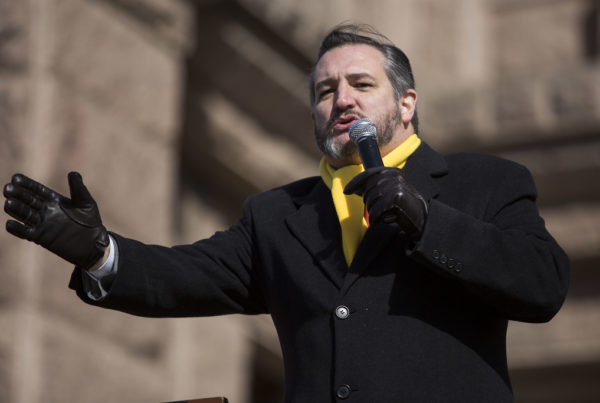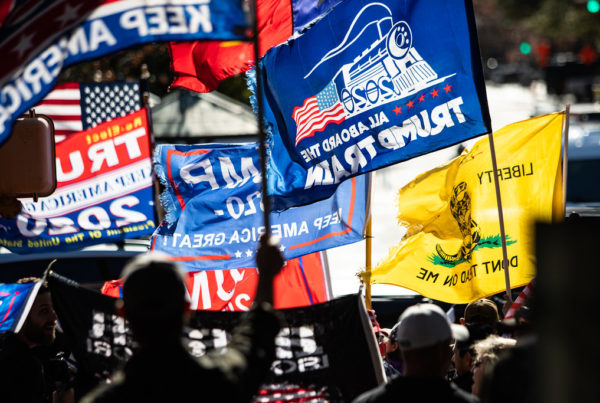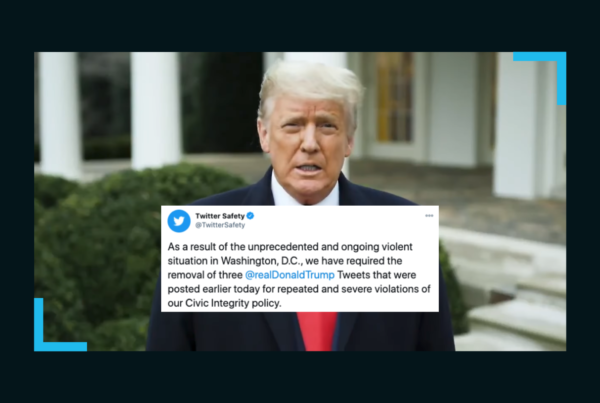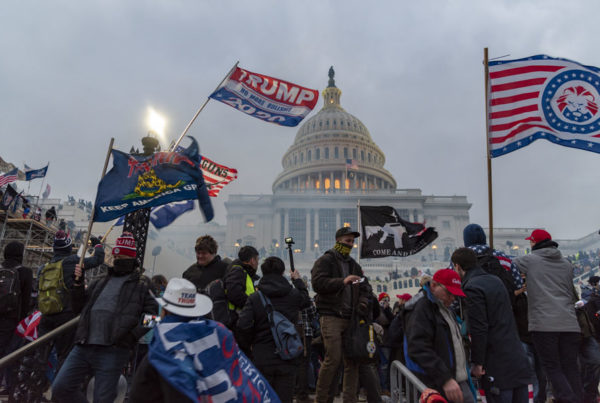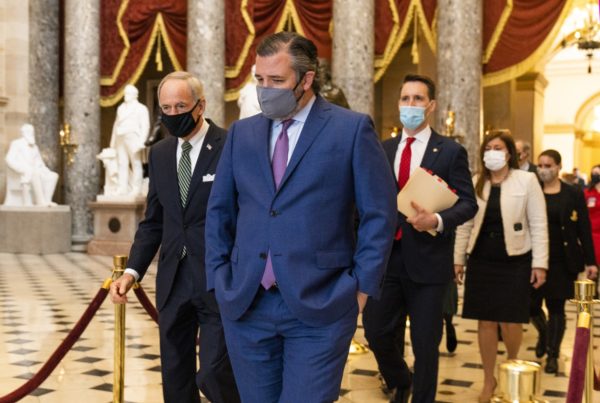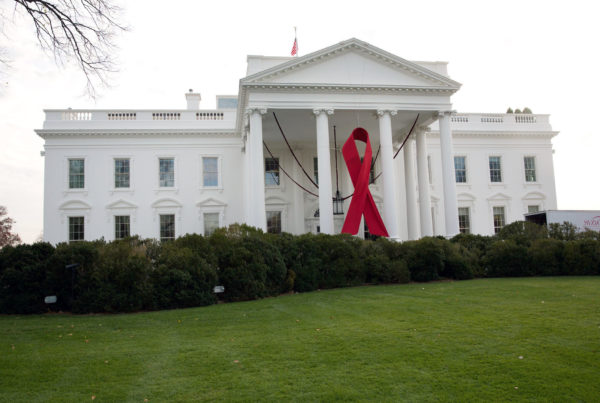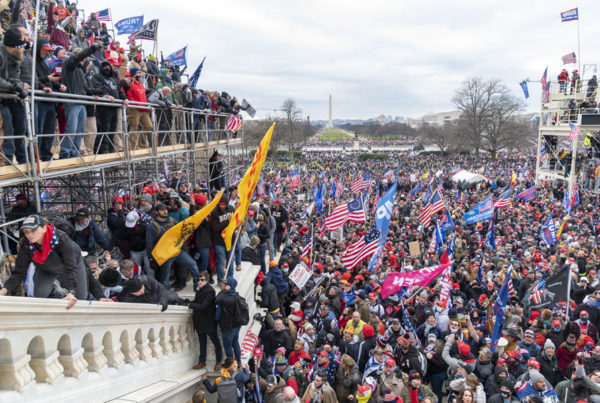On Wednesday, Americans watched on television as a mob entered and vandalized the U.S. Capitol, after President Donald Trump exhorted his supporters to continue fighting to overturn November’s election results. What will happen next centers around a complex tangle of legal matters – questions of what, for instance, constitutes an insurrection, and what constitutes incitement.
Steve Vladeck is the Charles Alan Wright chair in federal courts at the University of Texas School of Law. He told Texas Standard that any charges filed against members of the mob who entered the Capitol would come from the U.S. Attorney’s Office in the District of Columbia, which has jurisdiction over crimes committed in the city and on federal property there.
“I think they’re going to have their hands full trying to sort out exactly who they’re going after, and for which offenses,” Vladeck said.
Video and photographic evidence from the storming of the Capitol could form the basis of many charges against those who participated, Vladeck says. Charges could include criminal trespass, entering the House and Senate chambers without authorization or even seditious conspiracy or insurrection, “which is levying force in an attempt to overthrow the government of the United States.”
Vladeck suspects the incoming Biden administration will want to “make examples” of some members of the mob.
“The folks who were doing this were only too happy to post videos of themselves on social media – videos in which they’re not even wearing masks – so it’s not going to be too hard to identify these folks, if and when the Justice Department decides to throw the book at them.”
It’s less likely that charges of insurrection will be filed, Vladeck says, because that charge requires evidence that the goal was to overthrow the government by force.
“But when we look at what a lot of these folks have been posting on social media, what they had been saying in messages, what they are on camera as doing, I have to say, in my lifetime, that’s about as close a case to insurrection, to seditious conspiracy, frankly, as we’ve seen,” he said.
Vladeck calls incitement – whether by Trump or anyone else who encouraged his supporters to take illegal actions – a “heavier lift” because the First Amendment’s free speech protections are broad. The First Amendment, however, does not protect speech that is intended to cause “imminent, lawless violence, and is reasonably likely to have that effect,” Vladeck said.





